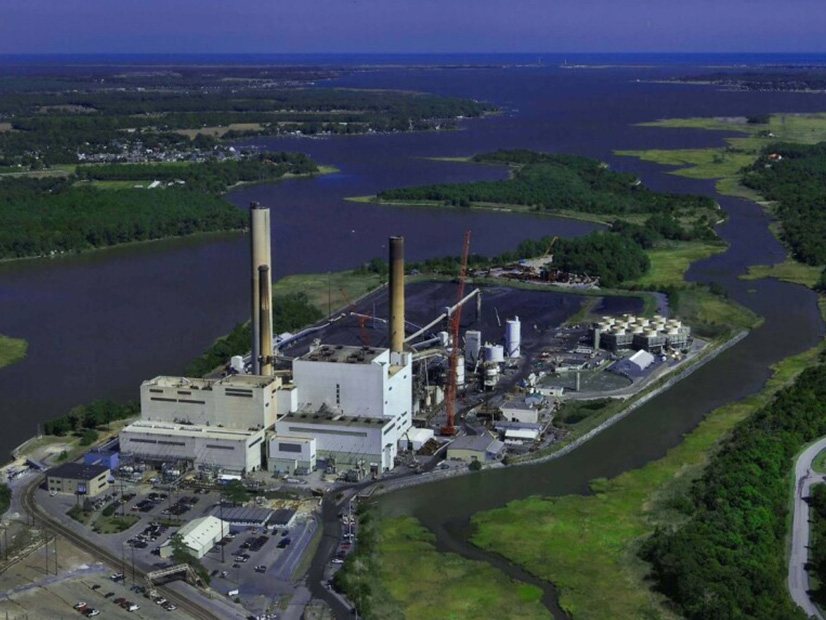The Maryland Office of Peoples Counsel and the Independent Market Monitor for PJM are urging FERC to reject a settlement to compensate NRG for keeping a portion of its Indian River coal-fired generator online under a reliability-must-run (RMR) contract (ER22-1539).
The agreement would pay NRG $263 million to continue operating the 410-MW Indian River Unit 4 between June 2022, the generator’s initial deactivation date, and the end of the RMR term on Dec. 31, 2026. The payment is split between $35 million for project investment costs and a $228 million “black box” sum, which combined amount to a $164 million cut to the $357 million NRG had requested for RMR service in its initial filing April 1, 2022.
In addition to decreasing the RMR compensation, the settlement would reduce the notice PJM must provide NRG to terminate the contract early, include the Monitor in reviewing new project investments and create a requirement that updates be provided at least three quarters before transmission upgrades are completed to resolve the reliability violations created by Indian River’s retirement. The terms were signed onto by NRG, the Delaware Public Service Commission, Old Dominion Electric Cooperative, Delaware Municipal Electric Corp., the Delaware city of Dover and PJM. The settlement also states that it was not opposed by the Delaware Energy Users Group, Delaware Division of the Public Advocate, Maryland Public Service Commission and Southern Maryland Electric Cooperative.
The Maryland OPC and Monitor both argued the black box nature of the settlement figure prevents the commission from evaluating the merits of the compensation and that about half of the payment would be for sunk costs that NRG already had written off as impaired investments in 2013 and 2017.
The Monitor argued that PJM’s tariff has two pathways for recovering costs incurred to provide RMR service, neither of which allow for sunk costs from prior to the start of the RMR period. In an affidavit, Monitor Joseph Bowring argued the proposed compensation would include $115,862,358 in sunk costs.
“The goal of the tariff language is to ensure that a generation owner who operates a unit past its intended retirement date for reliability reasons is compensated for all the costs that it incurs in order to provide that service. Part V service has the limited purpose of allowing PJM time to complete transmission upgrades needed to ensure the reliable operation of the system after a unit deactivates,” the Monitor wrote, citing PJM’s tariff.
Based on figures included in NRG’s initial RMR filing, the OPC stated that about 43% of the compensation would be for investments made prior to the start of the RMR period. It argued that would put consumers in the position of being asked to pay for losses Indian River experienced during its time as a merchant generator or face increased reliability risk if the resource retired prematurely.
“NRG’s proposition to the commission embedded in the proposed settlement, to the affected states, and to affected electric consumers — boiled down to its essence — is that absent securing the windfall of recovery of a substantial and disproportionate quantum of its already-written-off investment, it will retire the plant, thereby putting at risk operation of the electric grid. The commission cannot and should not endorse this. The plant can be fully compensated for those ongoing operating costs incurred so the plant remains in service during the RMR period without providing it a windfall for sunk investments that it had no investment-backed expectation to recoup years following their write-off,” the OPC wrote.
If sunk costs were allowed to be included in RMR compensation, the OPC argued an incentive would be established for aging generators with poor capacity factors to deactivate early to pursue compensation far higher than what they could receive in PJM’s markets. It estimated the Indian River RMR would come out to about four times higher than recent Base Residual Auction (BRA) clearing prices for the DPL South zone.
“The distorted incentives resulting from possible recognition of an inflated rate base due to sunk, fully loss impaired, investment, for RMR service units will only accelerate this process. The recent filings by Talen Energy … seeking RMR service for the Brandon Shores and Wagner power plants in the constrained (Baltimore Gas and Electric Locational Deliverability Area) is an exponential exacerbation of this problem,” the OPC wrote (ER24-1787, ER24-1790).
In initial comments on the settlement, FERC trial staff stated the settlement is “fair, reasonable and in the public interest” and recommended Settlement Judge Stephanie Nagel certify the agreement.
“The settlement reflects reasoned negotiations undertaken by all participants in good faith and resolves all issues in this proceeding. The settlement provides lower rates through a reduction in the monthly fixed cost charge and elimination of carrying charges in the project investment tracker,” trail staff wrote.
PJM stakeholders are considering two proposals to rework rules around generation retirement requests through the Deactivation Enhancements Senior Task Force. A PJM package would increase the amount of time generation owners must provide of their intent to shutter a resource ahead, while the Monitor introduced a proposal to establish a formula for calculating RMR compensation based on going-forward costs. (See PJM Stakeholders Considering Changes to Generation Deactivation Compensation and Timelines.)




